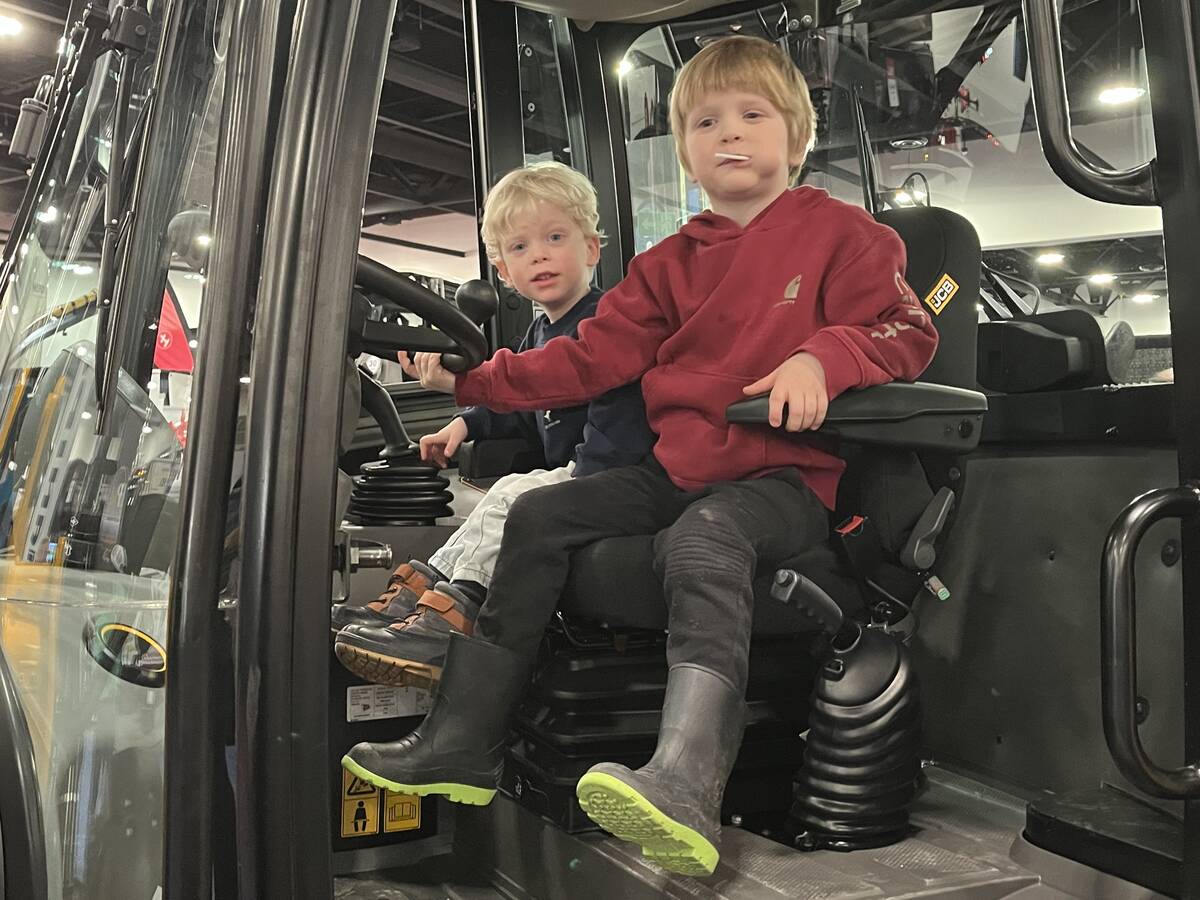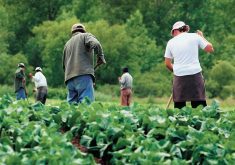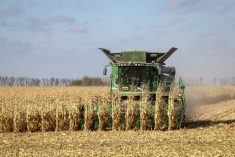Aerial field sprayers are the fighter pilots of industry, swooping low and fast while dropping chemical armaments over fields. They’re used to challenges such as avoiding obstacles including power lines, trees, buildings and vehicles.
But they’re facing a new challenge — getting chemical delivered to the aircraft.
Calvin Murray, founder of Early Bird Air near Strathmore, is one of the old-timers of aerial spraying. He’s had his share of close calls and challenges. Now his company, like other agriculture businesses, is caught in the downdraft of Canada’s post-pandemic labour shortage, and there’s no end in sight.
Read Also

Innovation takes centre stage at record-breaking Ag Expo
Lethbridge event hits capacity with 326 global exhibitors showcasing the latest ag tech, innovation and the 129th North American Seed Fair.
“It’s just a nightmare,” said the 42-year veteran commercial pilot, noting mid-April is when he needs employees on site. “We need truck drivers and other spray guys and ground crew for both airplanes and ground rigs. I have my pilots and my main guy that looks after the ground rigs.”
Murray’s biggest challenge is finding Class 1 drivers. He placed job advertisements in January and received one application in two months. In the end he hired a 55-year-old long-haul trucker who was out of job due to pandemic border regulations.
“So that’s how lucky I am,” he said. “She showed up and she’s still working for me.”
Murray said he knows of several businesses in his area that have failed to find Class 1 drivers. One business erected a large sign with flashing lights along the Trans-Canada Highway to attract applicants — with no luck.

Licence obstacles
Early Bird Air receives job applications from Albertans and those living overseas, but many applicants don’t respond when contacted. Murray said some people don’t like the commute from Calgary or starting work at 5 a.m. Others don’t like working into the evening.
“I think it’s a lot of things like attitude, and the government pays them too much to sit on their butt,” he said, adding one of his hires used marijuana on site.
“I don’t know what the answer really is, but there’s nobody out there who wants to work. I had one guy from the city that we took a chance on. He lasted a day and a half and quit. He said ‘it’s too hard from me’ — and it’s not a hard job. It’s a lot of hours but we pay good money too. It’s a nightmare.”
Early Bird Air has deployed a new round of job ads, but applications are few.
No-shows
“We had a couple people — five last year that said they were interested and coming, and they just didn’t show up,” he said.
“I think they had to actively be looking for work and they said they couldn’t find work, so they just took the government money to stay home. But I think that has backfired because I’m hearing now that people must pay it back. Not a good situation.”
It’s important to have quality employees that can be trusted with heavy equipment such as combines and tractors, said Konstapel, who usually looks for help around harvest.
“You can’t just find anybody. You’ve got to have somebody who can operate technology. There’s basically a computer screen in front of you and you need to be able to use that. These combines are $700,000.”
The feedlot business, already plagued with high input costs and other problems, is also in a labour flat-spin, said Jacob Beuckert, chair of the Alberta Cattle Feeders’ Association. He owns two feedlots in southern Alberta and needs Class 1 drivers, mechanics and labourers. He feels like he’s in a bidding war with other industries. Help-wanted ads have yielded few responses.
“Probably what’s the most scary is bad government policy,” he said. “When we look at methane-reduction targets, reduction in fertilizer, and all these things — that’s probably what keeps us up at night more than anything. Those are just things we can’t control.”















